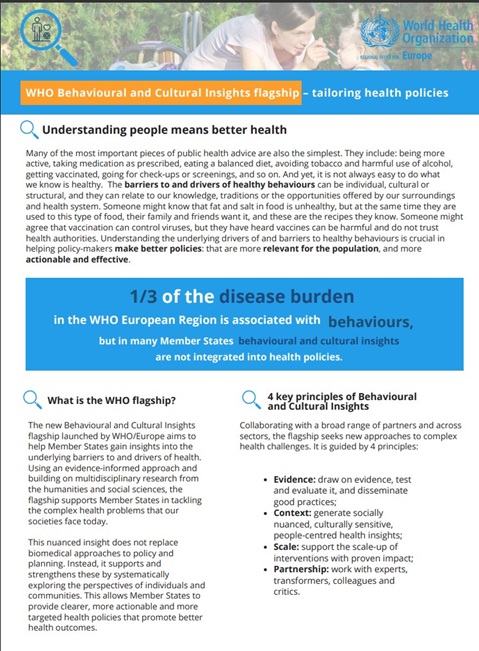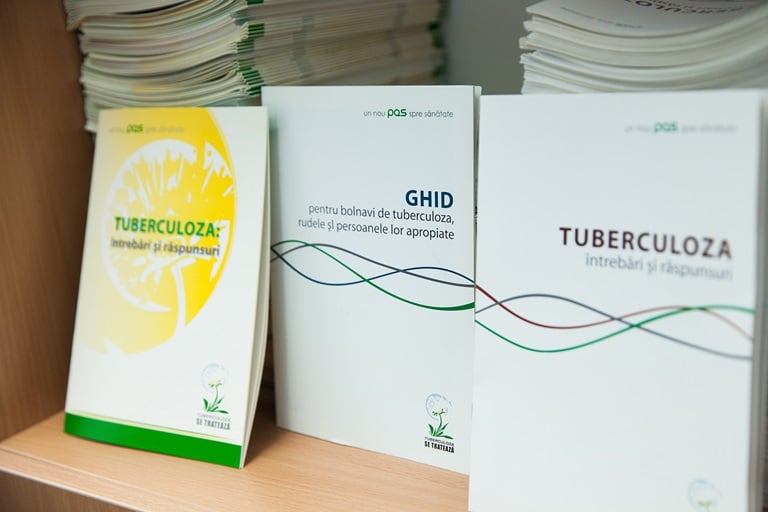WHO Behavioural and Cultural Insights flagship – tailoring health policies

Overview
What is the WHO flagship?
The new Behavioural and Cultural Insights flagship launched by WHO/Europe aims to help Member States gain insights into the underlying barriers to and drivers of health.
Using an evidence-informed approach and building on multidisciplinary research from the humanities and social sciences, the flagship supports Member States in tackling the complex health problems that our societies face today.
This nuanced insight does not replace biomedical approaches to policy and planning. Instead, it supports and strengthens these by systematically exploring the perspectives of individuals and communities. This allows Member States to provide clearer, more actionable and more targeted health policies that promote better health outcomes.
4 key principles of Behavioural and Cultural Insights
Collaborating with a broad range of partners and across sectors, the flagship seeks new approaches to complex health challenges. It is guided by 4 principles:
- Evidence: draw on evidence, test and evaluate it, and disseminate good practices;
- Context: generate socially nuanced, culturally sensitive, people-centred health insights;
- Scale: support the scale-up of interventions with proven impact;
- Partnership: work with experts, transformers, colleagues and critics.






